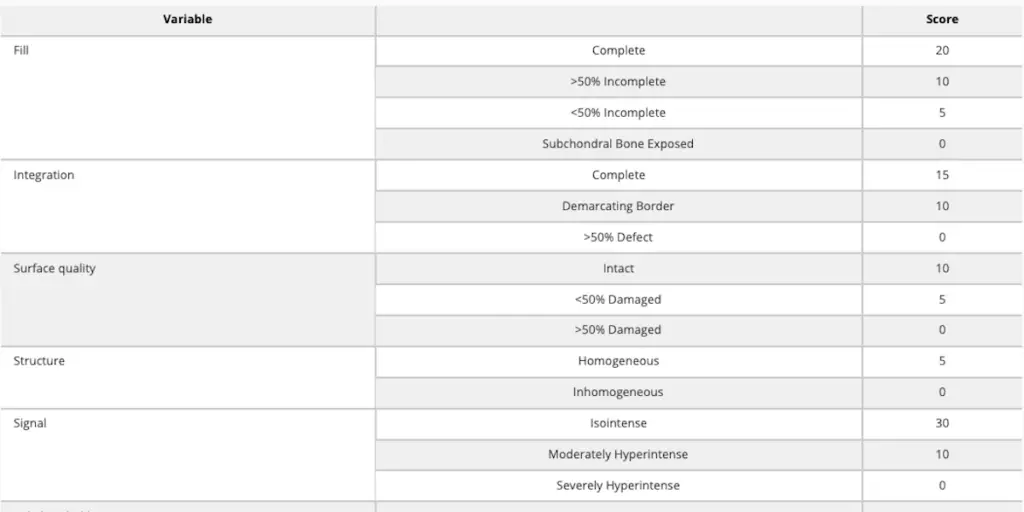We are constantly evaluating our patients after cartilage transplants to assess their progress, both as far as pain relief and a return to activity. Furthermore, we look at MRIs to see the cartilage repair quality as well as how the bone is responding post-operatively.
In this study, we looked at matrix-induced autologous chondrocyte implantation (MACI). This is a type of cartilage repair using one’s own cartilage (grown outside the body onto a collagen membrane) to repair defects in the front of the knee (patella and trochlea).
What we discovered was that a radiologic scoring system was able to predict good outcomes down the road. None of the techniques we have at present work all of the time as we rely on many factors, such as the ability of cells to produce matrix and mature over time.
Learn more about this study in Sage Journals: Magnetic Resonance Observation of Cartilage Repair Tissue (MOCART) Scores > 55 at 6 Months Postoperative Predict Ability to Achieve Patient Acceptable Symptomatic State at Minimum 1 Year Postoperative Following Autologous Chondrocyte Implantation for Grade IV Chondral Defects About the Patellofemoral Joint
The image is a screenshot of the MOCART scoring system.

